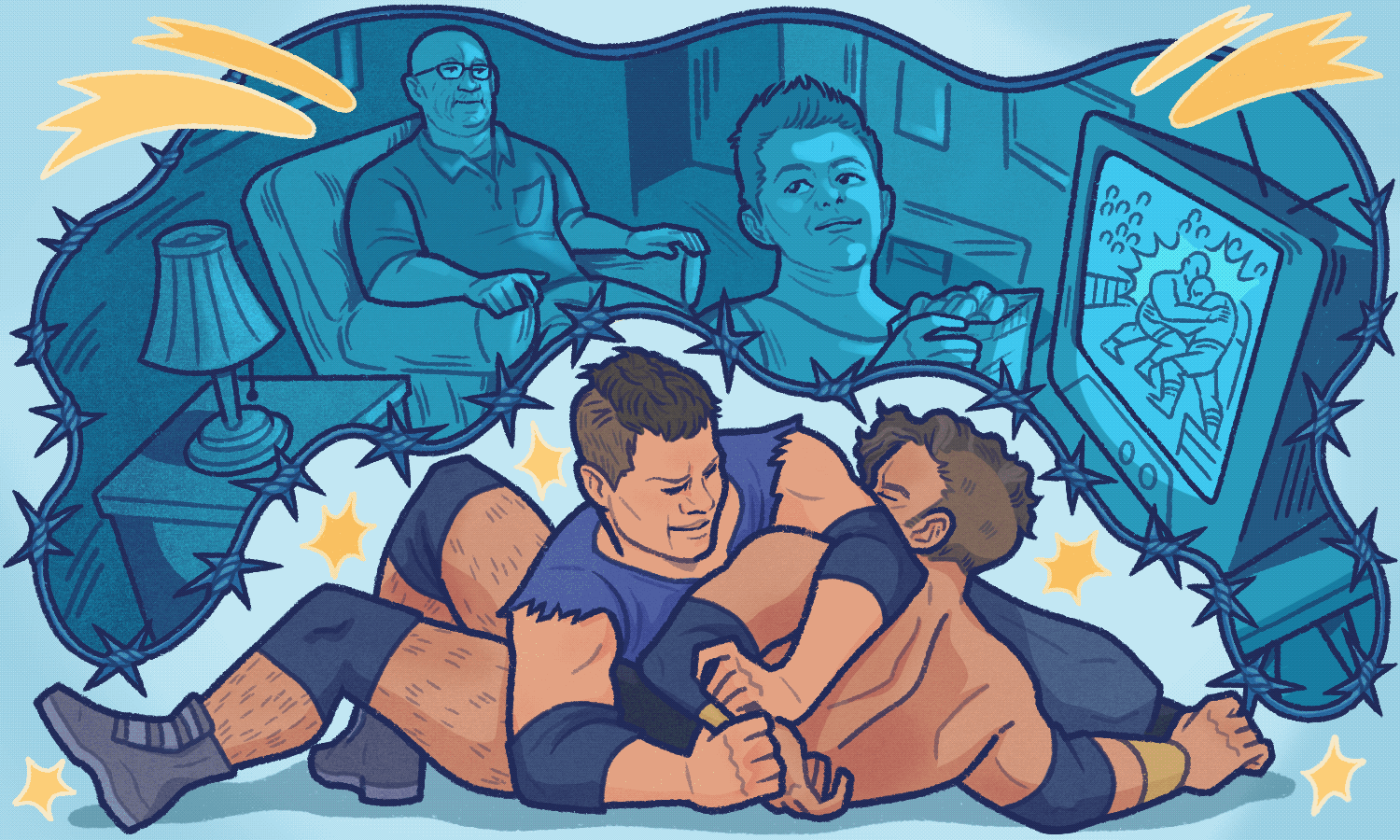
LAUREN IBANEZ / NEXTGENRADIO
What does it mean to be
home?
Stefan Richard shares his story about how the professional wrestling ring became home. A member of Sagkeeng First Nation, Stefan explains how sharing a bowl of potato chips with his Grandfather on Saturday nights shaped a lifelong obsession and a future career path. Stefan reflects deeply into his life and the place he calls home.
Anishinaabe Pro Wrestler finds sense of self in the ring
LISTEN TO THE AUDIO STORY
Click here for audio transcript
I’m Stefan Richard with NextGen Radio Indigenous in Winnipeg, Manitoba, Canada.
I’m a former professional wrestler, a reporter… but most importantly, a Father.
I spent my time growing up looking for home, and I found it in the professional wrestling ring.
I cannot remember a day in my life where I don’t remember wrestling being a part of it.
I grew up without my dad. I grew up with my single mom and my grandparents.
Wrestling was what made me happy. It equated me to being back home with my grandfather and really bringing, I guess, a sense of peace, a sense of calm, because when I was growing up, I didn’t have I didn’t have any moments with like my biological father.
I would say wrestling is a Saturday evening at home, with my grandfather, I would be sitting on the floor. He’d be sitting on the couch and I’d be eating chips, specifically ketchup chips.
I answered an Internet ad for a local wrestling school
My mom paid 50 bucks for me to get in the ring for the first time
15 to 23 years old. I spent eight years in wrestling that first time and my goal was to wrestle in Japan and in wrestling. Going to Japan or going to Mexico is like going to play in Europe or in South America if you’re playing soccer or football.
I had worked really hard to get there to Japan when I was 23. And I ended up having a drug overdose on the flight to Japan. So I went and I had one match and I came back home and I never went back. Not because I didn’t want to, but because the way that.
Life played out after that. It wasn’t. It wasn’t a great time,
I struggled with addiction for probably about two years after that. And I got clean when I was 25. So in 2013, I got clean.
I was 27, I believe, when I went back to wrestling, and I only did it for probably about two or three years.
Just small shows. No ambition, just doing it for fun. Wasn’t trying to go make it big in WWE or anything like that, but I did understand that it brought me that peace. It brought me that safety that I had longed for and had worked really hard to get.
In fact, I recently just had what I would say was my last match what’s called a death match. And they are, if wrestling is performance art, Deathmatch is the horror genre of pro wrestling.
The last match that I had involved broken glass and barbed wire and tables
Now that I’ve wrapped up on wrestling. At least for the time…I had fun doing that stuff.
I had a great time and I wouldn’t be the person that I am. Today without having been a character and having been, you know, having been someone else that I created in my head for a time.
As a performer, I’ve done both the good guy and bad guy role. However, predominantly I’d be known as a villain or in in Mexico and Lucha libre be called a “rudo.” I have a “rudo” tattoo on my knuckles. So yeah, I would say I excelled more as being the villain.
And wrestling is weird because once you go out in public, people expect that the character that you are is the character that you are in real life somehow. And I don’t know why, but that’s just the way it is. So, I didn’t need to be that character anymore and that is totally okay.
It’s totally okay.
I am someone who has spent his life searching for “home.” Whatever the meaning of home might be – a physical place or a feeling. I am a 35-year-old Anishinaabe man from Winnipeg and member of Sagkeeng First Nation. I’ve found a way to call the pro wrestling ring home.
I have spent the last 20 years traveling the roads as a pro wrestler. My journey began as a fan with my grandfather, Raymond, in his childhood home, watching the stars of the World Wrestling Federation (WWF) on our local TV station, CKND TV, every Saturday.
When the bright lights of WWF programming came across the airwaves, nothing could come between me and the screen except the obligatory bowl of ketchup potato chips that my grandpa would leave out for the matches.
I was abandoned by my biological father before I was born. Raymond is my maternal grandfather and lives in the family home with my grandmother, Lucille, and my mother, Mylinda.
Sometimes all it takes is one opportunity to change your destiny. In 2001, at 13 years old, that moment came for me. An internet ad for a local Winnipeg wrestling school captivated my attention. The ad was for a $50 tryout at the school. My mom answered the ad and gave me the cash to get to the wrestling school and hopefully reach my ultimate goal of becoming a professional wrestler in Japan. Japan is where the best wrestlers go before or after their time in another major organization like World Wrestling Entertainment (WWE) or All Elite Wrestling (AEW) in North America.
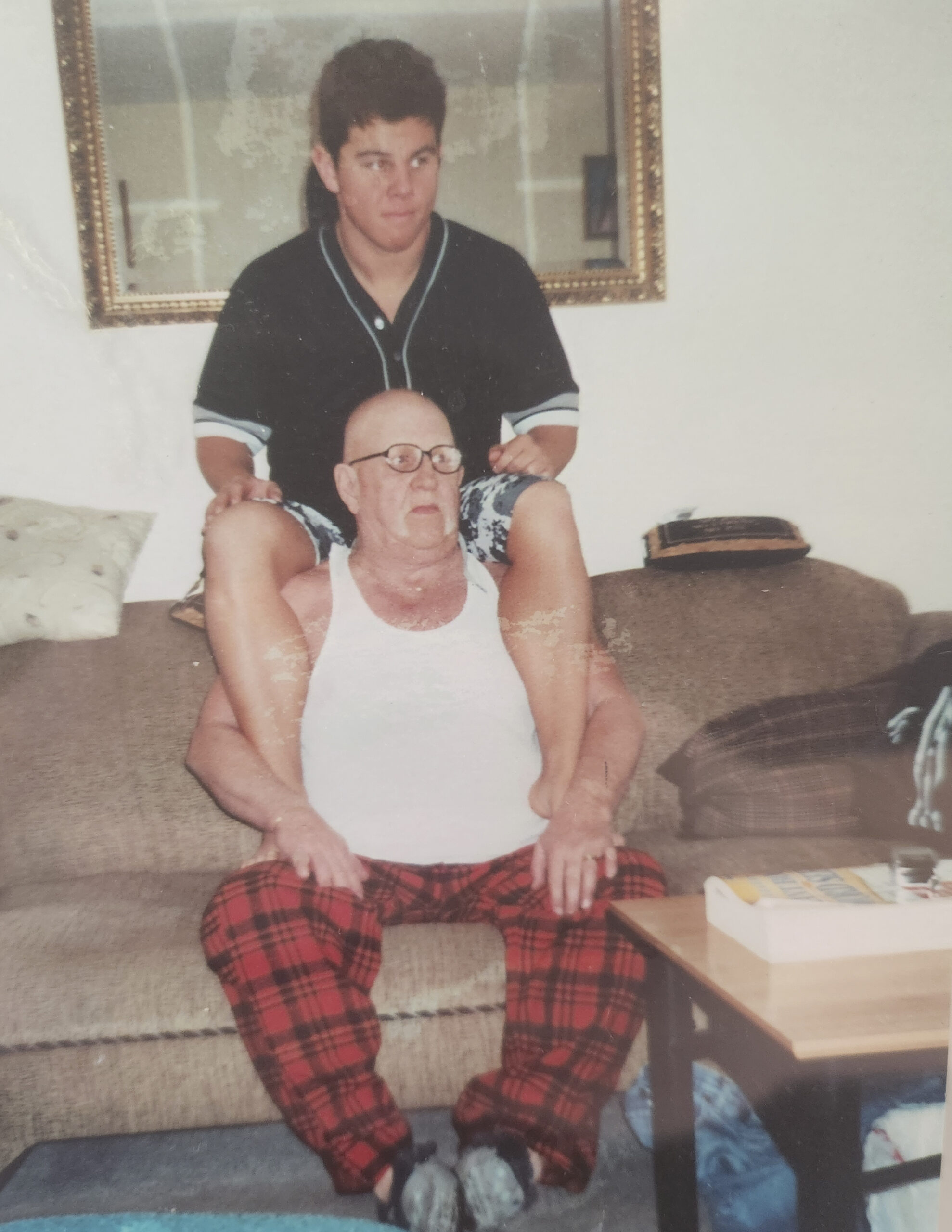
Stefan Richard sits on his Grandfather Raymond’s shoulders while watching television together.
STEFAN RICHARD / NEXTGENRADIO
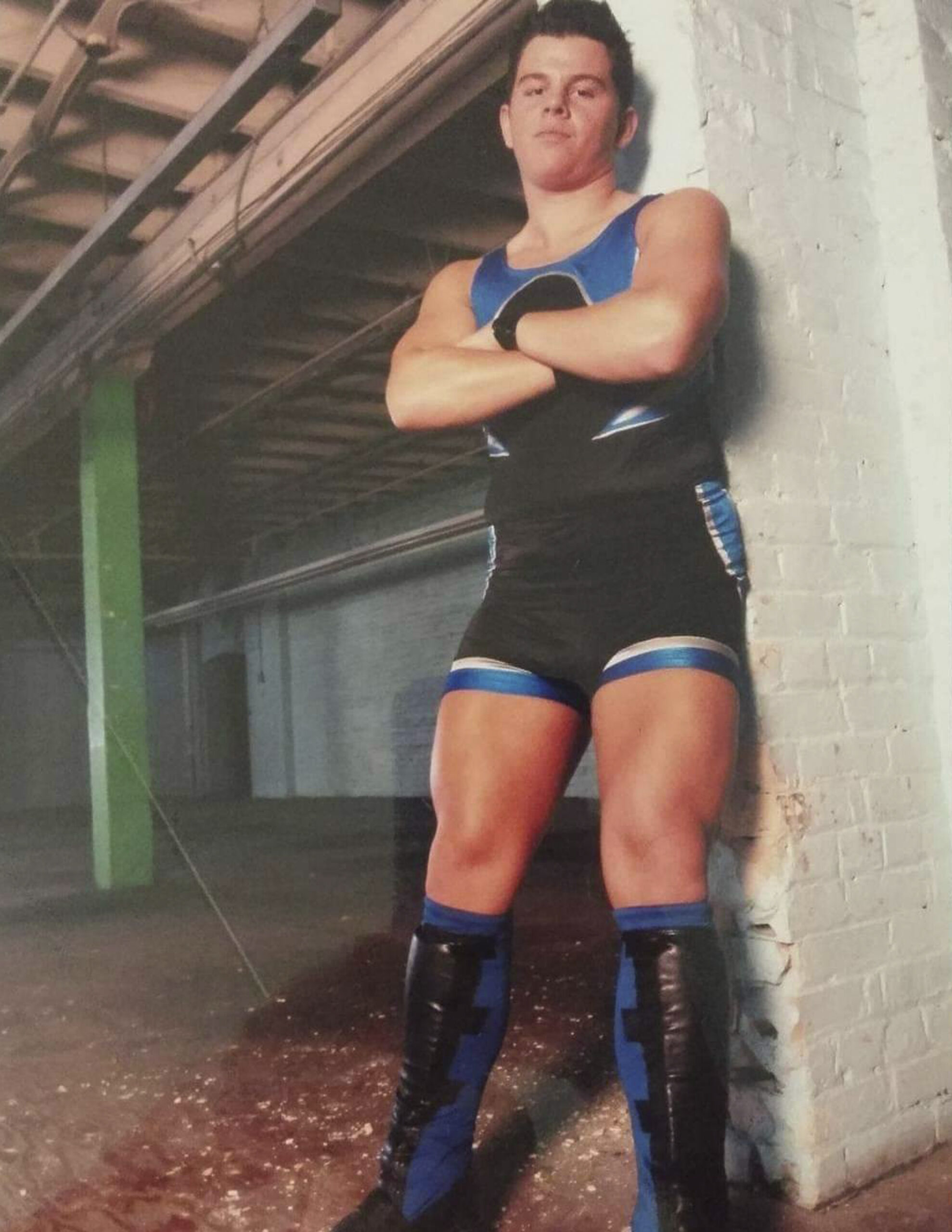
Promotional picture of Stefan Epic.
STEFAN RICHARD / NEXTGENRADIO
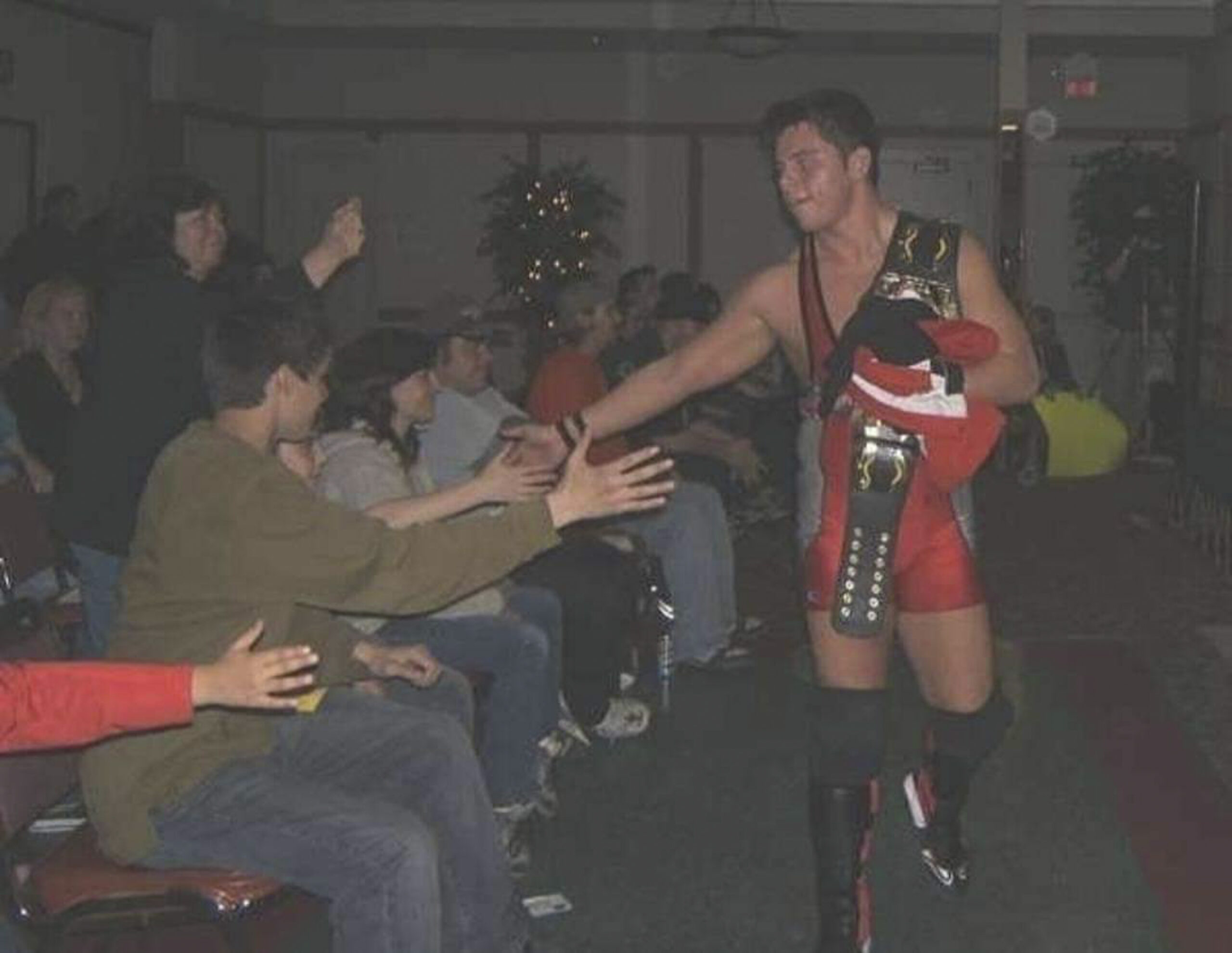
Stefan Richard, professional wrestler, walks past a group of fans with a championship belt.
STEFAN RICHARD / NEXTGENRADIO
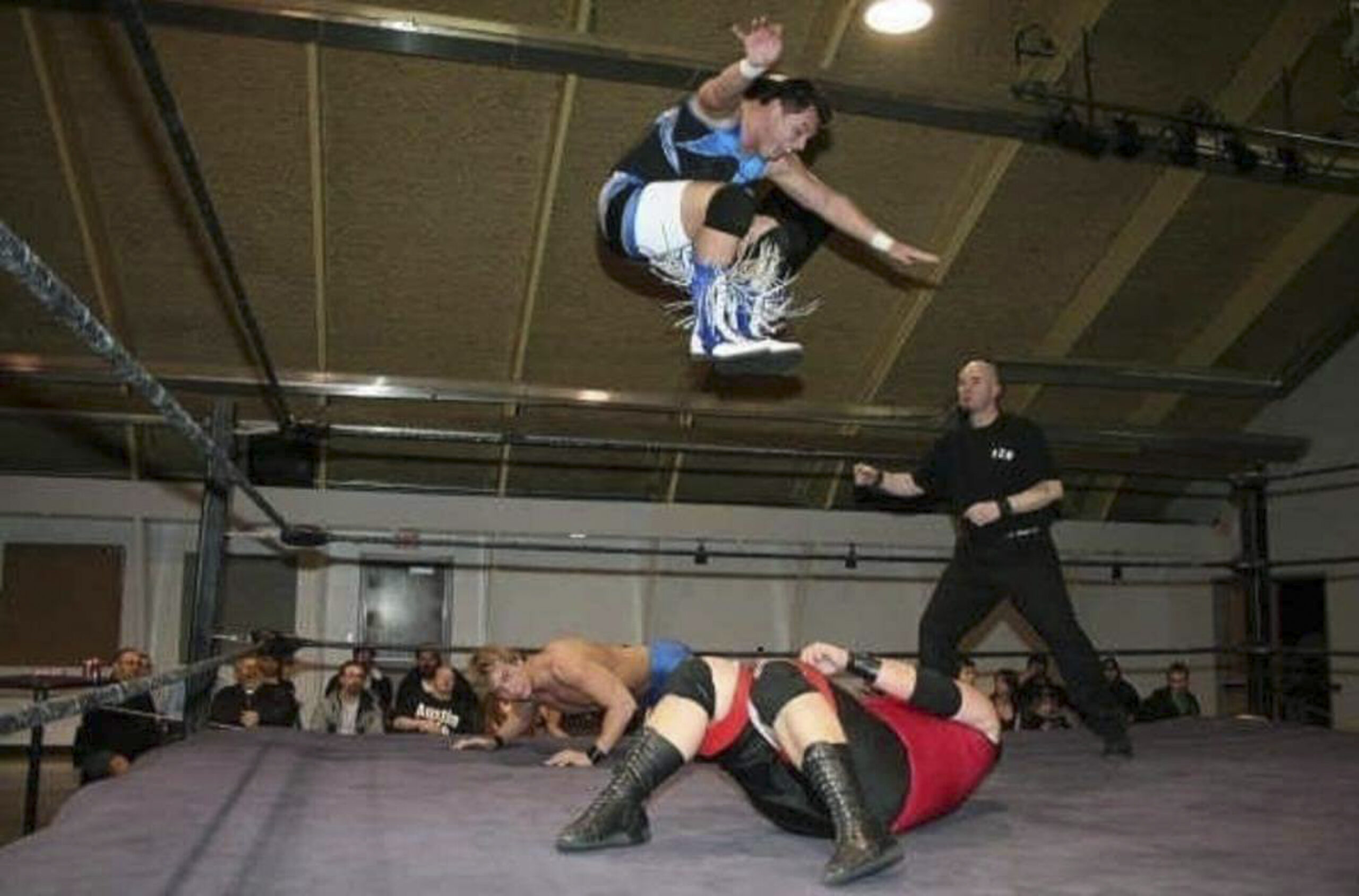
Stefan Epic flies off the top rope in Lethbridge, Alberta.
STEFAN RICHARD / NEXTGENRADIO
After competing in my first official match at the age of 15, I spent the next eight years in the gyms, training centers and in front of crowds all over Western Canada developing a persona and in-ring character, Stefan Epic. I was finally able to jet off to Japan at the age of 23. After many years of work, this was my big opportunity. The opportunity of a lifetime.
At that moment, life took a different turn. Affected by a fatherless childhood and an identity crisis, I ended up down the path of addiction. Day after day, week after week, the addiction became all consuming. On February 3, 2011, my flight was scheduled to depart from Winnipeg to Calgary and then from there to Vancouver until the final destination,Tokyo. The first leg of the flight was when things went sideways. I took a combination of drugs and subsequently had an overdose on the flight. Waking up in a Calgary hospital is a memory that will stick with me forever. I woke up hooked up to machines, not knowing how long I had been there. It had only turned out to be a few hours but it was too long for me. I had my mind made up that I would talk to the doctor and discharge myself to continue on my way. I did exactly that. Against doctors’ orders, I managed to make it back to the airport and make it onto the next flight to Vancouver, with very little recollection of how I did so.
After significant delays, I finally made it to Japan, competing in a single match while very ill from my overdose. The dream did not last long as I had to return to Canada only 48 hours after arriving in Japan. I was lost.
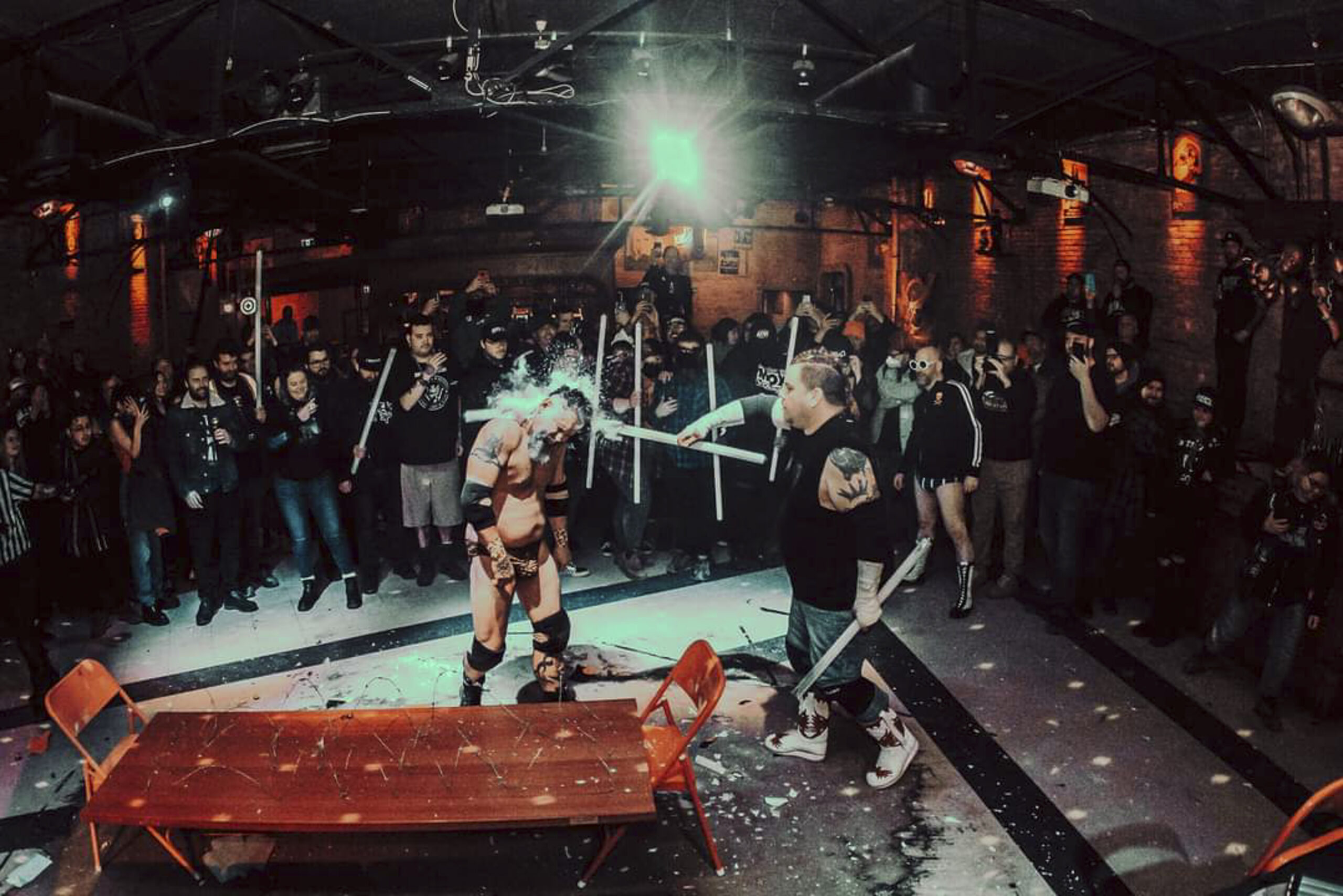
A smashing good time. Stefan Epic destroys a lighttube over the head of his opponent, SeXXXy Eddy.
Photo courtesy of Hold Fast Photography
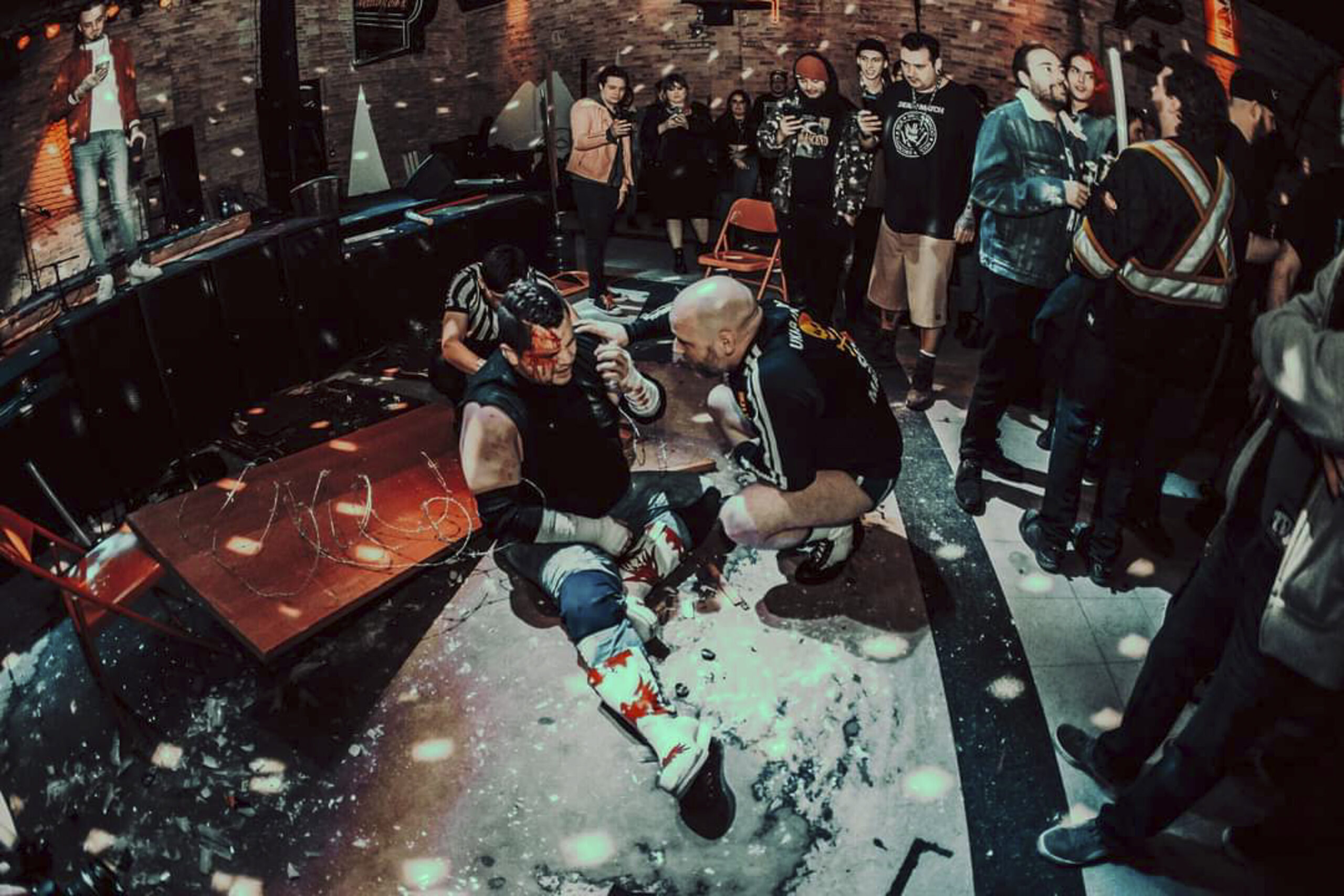
After being tossed into a barbed wire table, Stefan Epic is worse for wear.
Photo courtesy of Hold Fast Photography
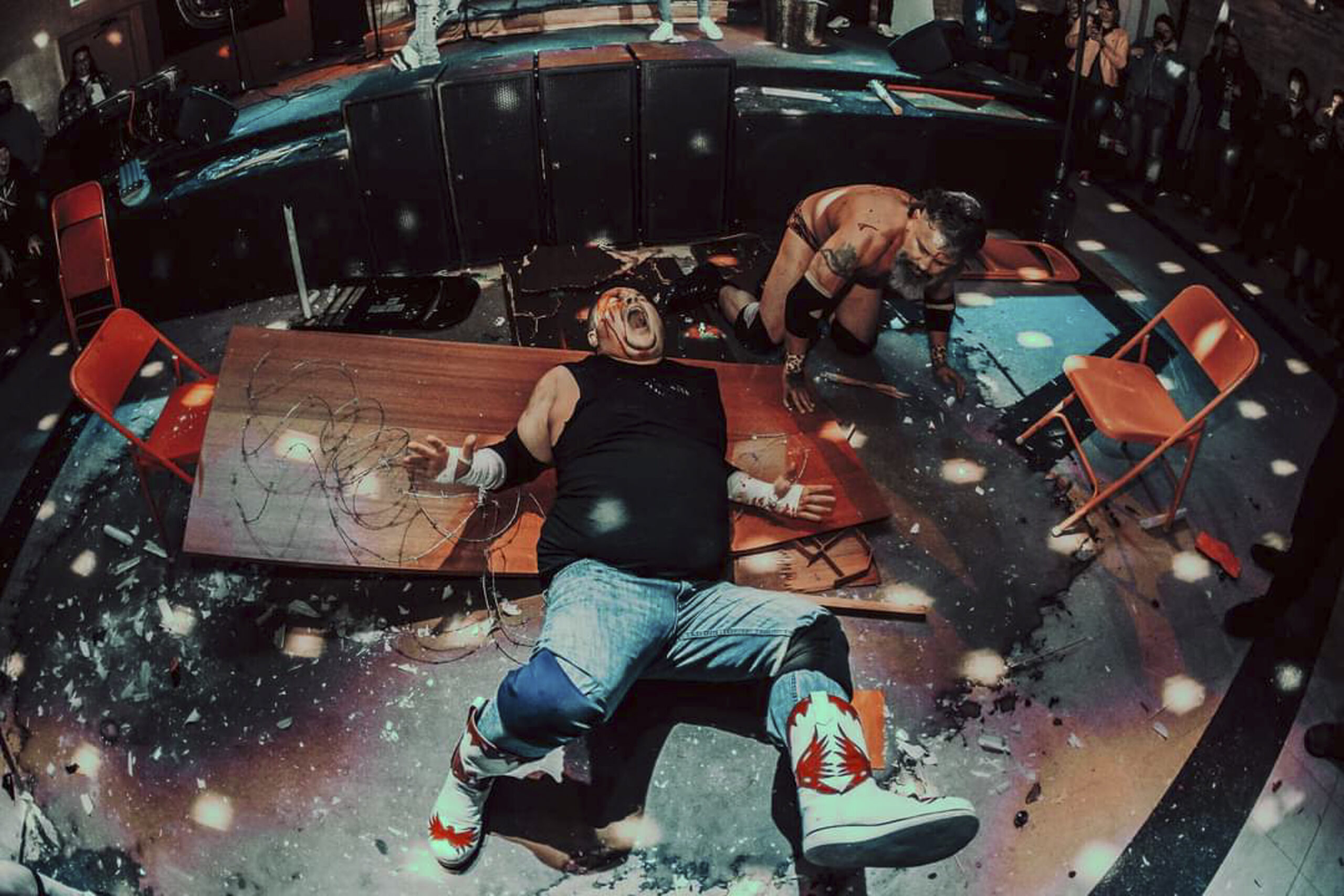
An action shot of an awful landing, Stefan Epic crashes through the barbed wire door.
Photo courtesy of Hold Fast Photography
After returning home, I relapsed. The addiction got worse until I was able to get clean at the age of 25. It was then that I began to learn about who I am, about my culture and about life beyond wrestling. I was a young father, and I realized that life isn’t about how much you win, or how many possessions you have at the end of the day. It’s about being a father and the smaller moments with friends and family. It’s not about how you look, it’s about living your most authentic self and finding people who care about you and who accept you wholeheartedly.
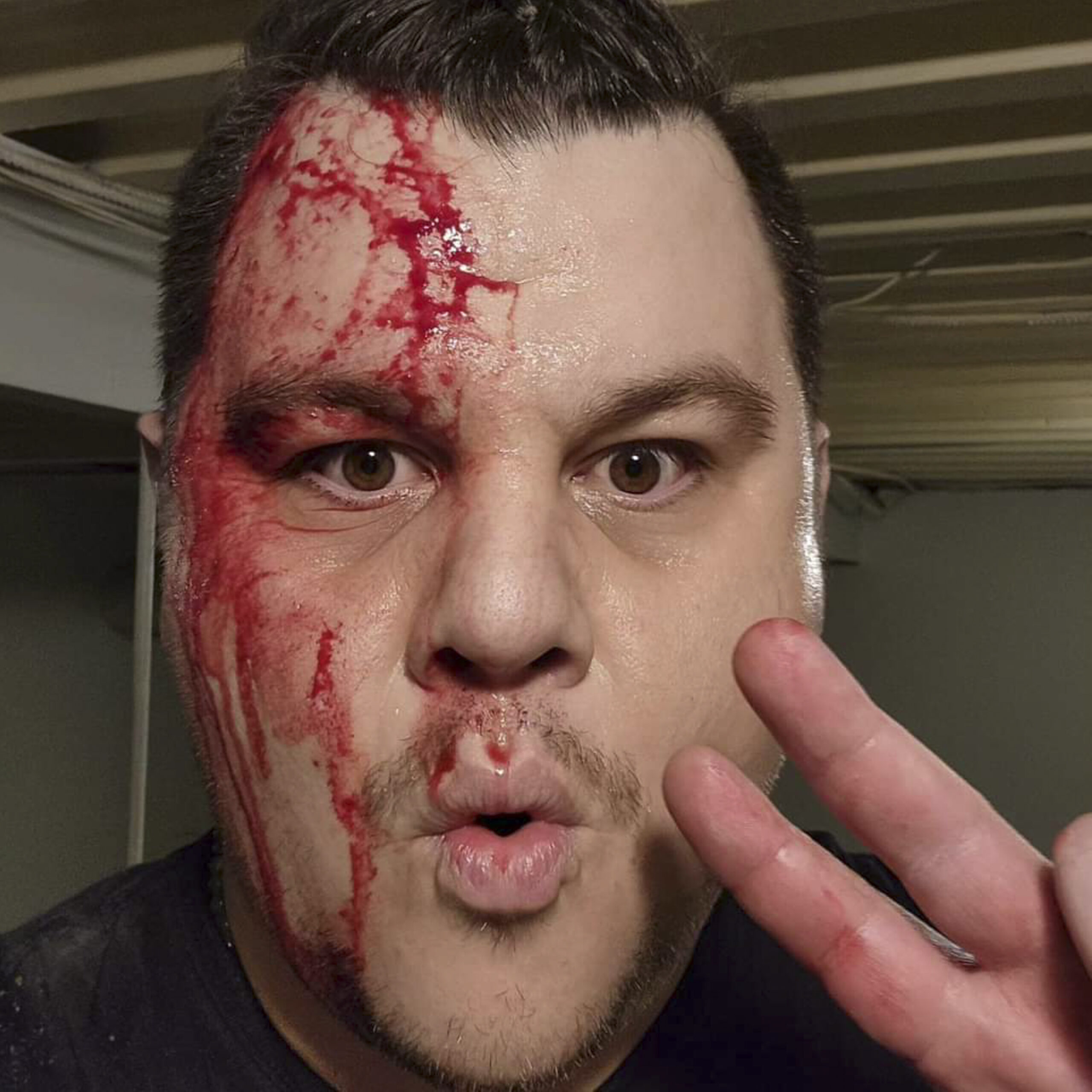
A post match shot after a battle with SeXXXy Eddy.
STEFAN RICHARD / NEXTGENRADIO
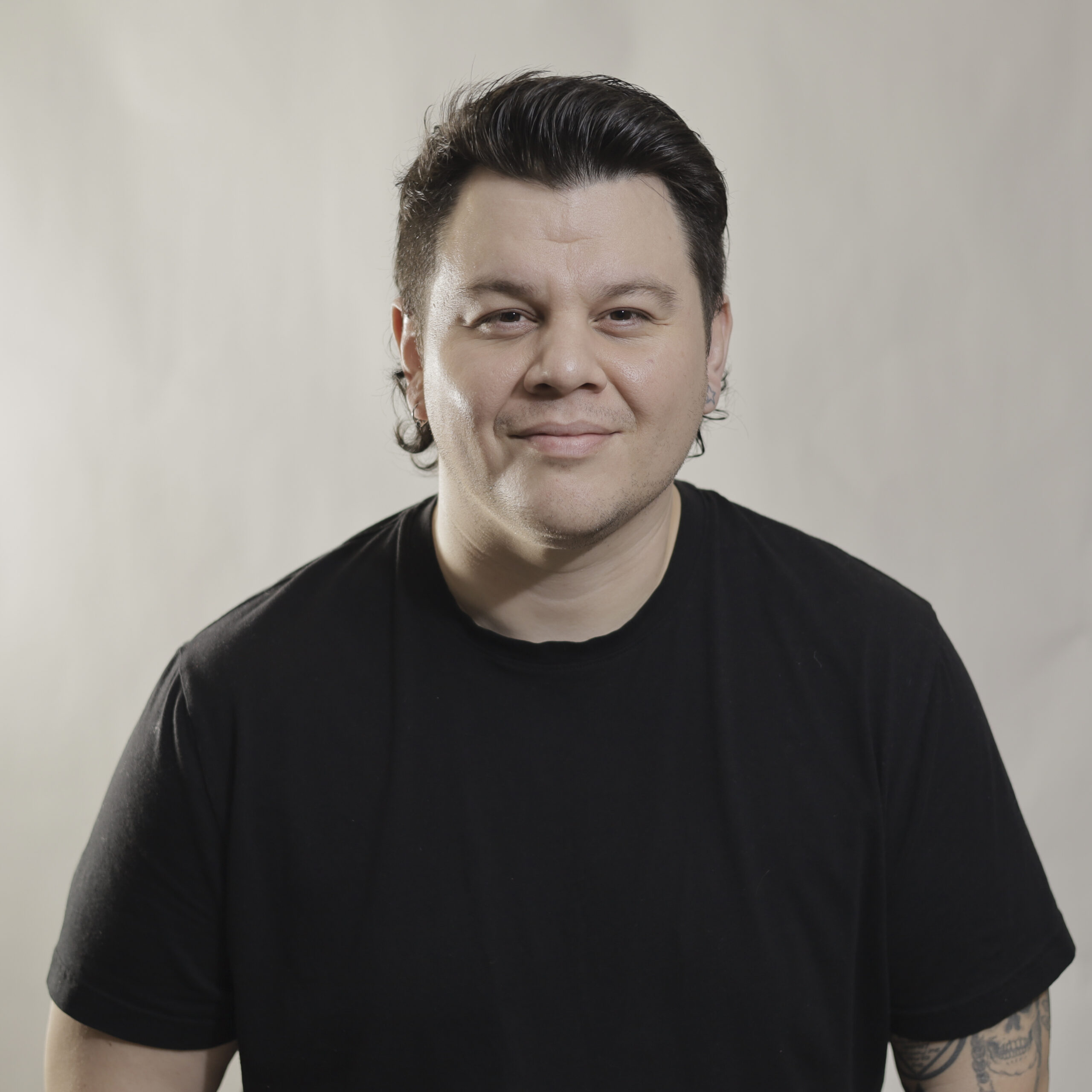
Headshot of Stefan Richard.
STEFAN RICHARD / NEXTGENRADIO
I began wrestling again on a lighter schedule a few years later at the age of 27, after convincing myself to try and just have fun with it. Wrestling provided shelter in an emotional storm during the first eight years of my career. Wrestling now returned to give shelter of a different kind. It provided fun, an escape, and the chance to play a character that didn’t need to meet the world’s expectations.
The journey of an in-ring wrestling career came to its very uncomfortable end in 2023 with a no-ring deathmatch. A deathmatch is like a live horror movie. The matches consist of blood, weapons and high-risk maneuvers. It’s not for the squeamish but it is for the most hardcore of wrestling fans. A live display that ended with me saying goodbye to the wrestling industry and returning to my seat still the same wrestling fan that my grandfather raised me to be.
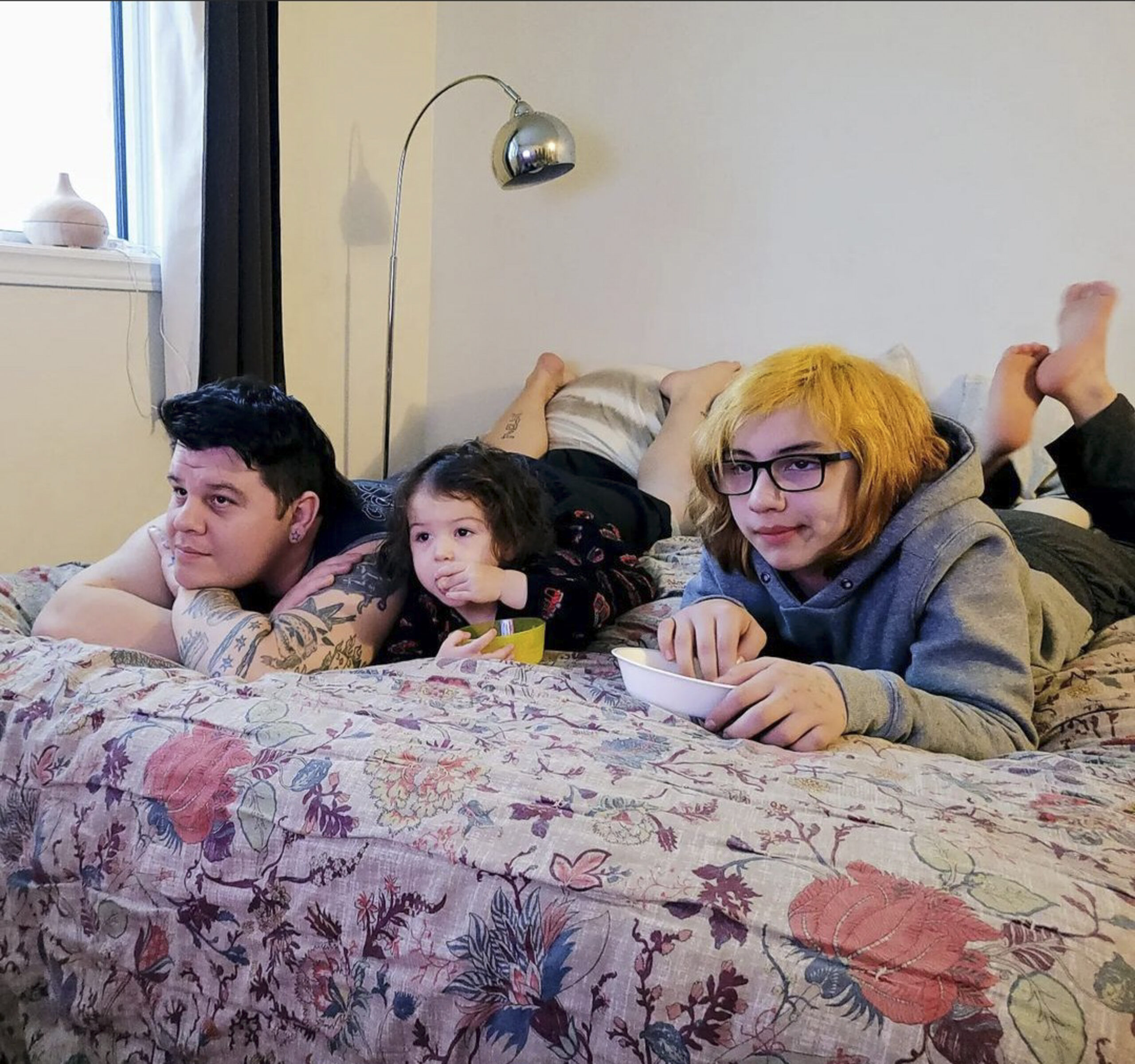
Stefan watching a movie with his children at their home in Winnipeg.
STEFAN RICHARD / NEXTGENRADIO